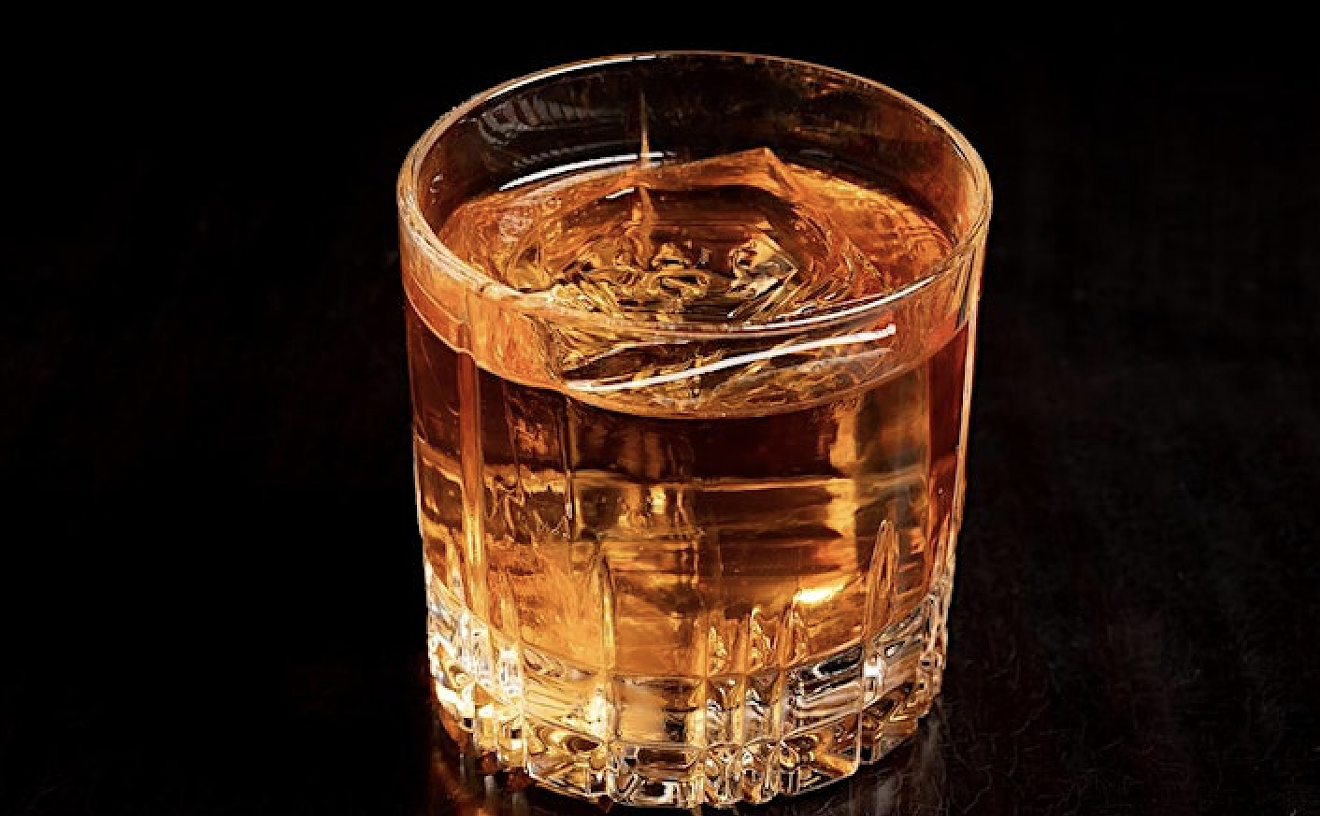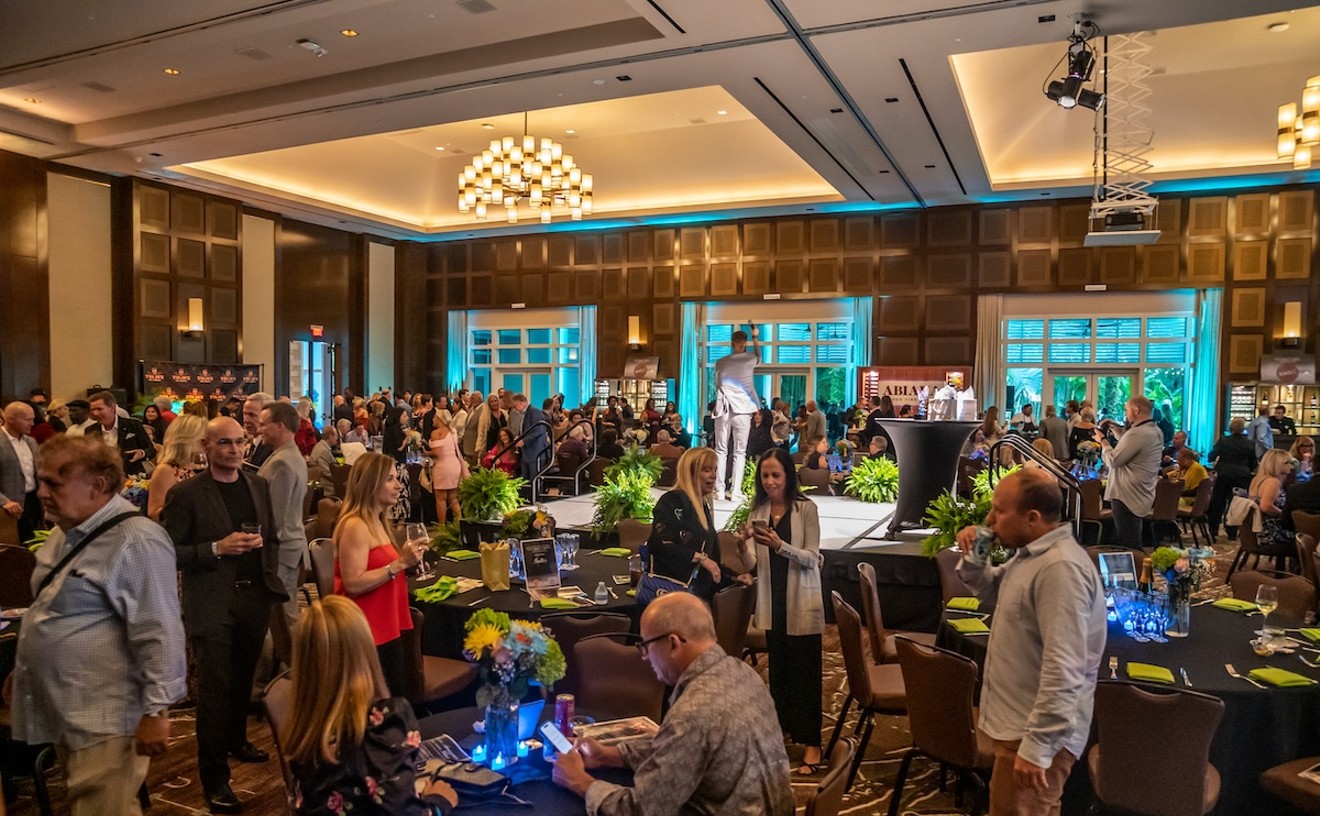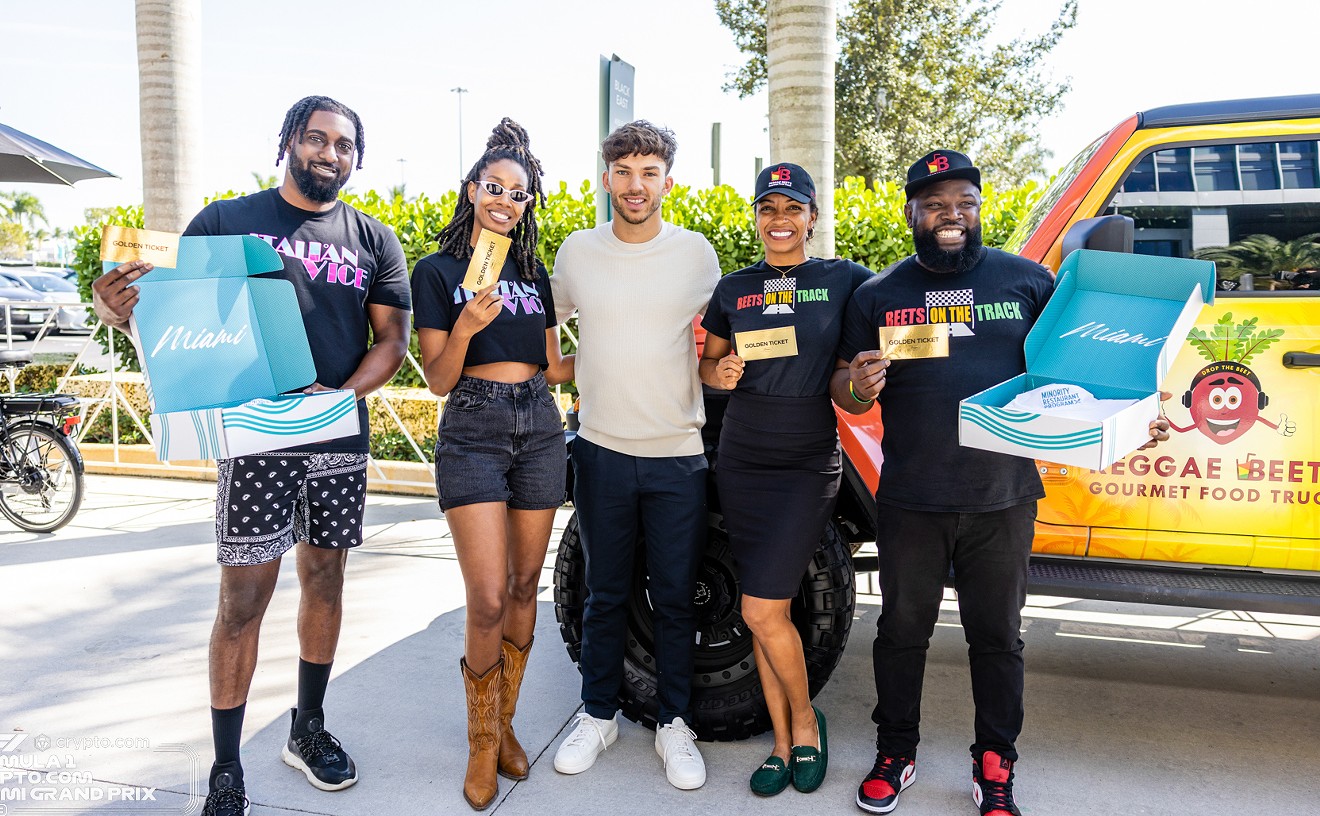In a society dominated by Starbucks, coffee gets all the media love. But what about that other hot beverage -- the one that cultures have been drinking for, oh, 3,000 years or so? The one that Buddhist monks swear by? The one they drink religiously on Downton Abbey? Tea ringing a bell?
Despite what most of us probably think,it's far more complicated than your average Lipton teabag. So we spoke to Michael Ortiz, Miami's local tea expert and founder of JoJo Tea (which supplies some of the city's hottest spots), on some fascinating facts about the t-word that you probably weren't aware of.
See also: Biltmore's Afternoon Tea: High-Class Living for Only $20
Ortiz schooled us on all things tea. Turns out there is a lot to learn.
5. Green, black white and oolong teas all come from the same plant.
According to Ortiz, basically, green tea are the whole leaves dried and lightly processed. With black tea, the leaves are rolled, which breaks the veins - then brewed, then allowed to oxidize (wilt), then baked to stop the oxidization process. "That's why it's more malty and can stand up to milk and sugar," Ortiz says. Unlike green tea, which becomes brothy. Oolong teas are anything in between, from 10 to 95% oxidized. And white tea is just the plant's bud, lightly dried in the shade.
4. Tea comes in grades. Orange pekoe is the best.
"In a processing plant a lot of leaves are destroyed, Ortiz says. "With orange pekoe, or OP, the leaves are not broken. Imagine a leaf is like a hand - a lot of veins, like a hand has. The oil and juices moving through it are like blood. So like cutting a hand, every time you break the leaf you lose oil and juice. When that happens the tea loses a certain complexity of taste."
After OP comes broken orange pekoe - which is still good for iced tea and chai teas, he adds. Then there's smaller, pellet sized leaf pieces known as fanning. And lastly, dust.
3. Location is everything.
Like with wine, tea is grown in specific regions of the world, and conditions are crucial. Teas are grown at high altitude, and terroir (how soil and area affects the taste) is applicable. "Our specialty teas, like oolongs from Taiwan -- they're some of the best teas in the world. They're grown in areas that get limited amount of sunlight which makes the leaf develop interesting notes."
2. Freshness matters.
So you might want to opt out of Lipton. "When was it harvested, when was it processed, when was it packaged. How has it gotten to me and my cup?" Those are the big questions to ask, Ortiz says.
1. Tea is really, really good for you. Even if the FDA makes you keep quiet about it.
The FDA won't allow teamakers to tout the health benefits of tea. They're more concerned with revenue-generating psychopharmacology. Tea is a food product, not a supplement, yadda yadda. Nonetheless, it's no coincidence that holistic practitioners and health-conscious cultures have been utilizing tea for thousands of years.
"It's high in catechins and they actively fight cancer," Ortiz says. "Specifically Japanese green tea. Macha is a powdered green tea that you mix with hot water. It also has a kind of flavonoid called polyphenols. They basically act like a detergent in that a detergent breaks down grease in clothes, and they break down grease in your body before it sticks to fatty deposits, whether it's in your veins or belly," Ortiz says. So drink more of it already.
You can find JoJo Teas at a host of local spots, from Panther Coffee to the 50 Eggs group to PB Steak. And while Ortiz handles those clients via JoJo, for the bigger gigs he works with Steven Smith Teamaker as a distributor. (Before he started his namesake endeavor, Steven Smith was the dude behind Tazo Tea. Good stuff.)
"We have loose leaf tea and sachets - we have 45 different varietals of loose leaf tea and 15 of sachet tea. Basically what sets us apart is that all of the world's main tea growing regions are represented," Ortiz says. And while consumers can't buy directly from the source, you can find JoJo Teas in restaurants all over town.
If you're a business interested in upping your tea game, give 'em a shout. They love customizing tea programs, Ortiz adds. And if you really want to geek out on tea, check out their website.
Follow Hannah on Twitter @hannahalexs.
Follow Short Order on Facebook, on Twitter @Short_Order, and Instagram @ShortOrder.









